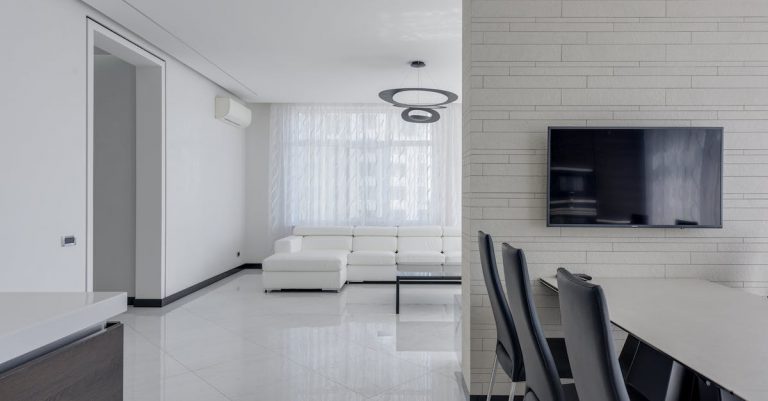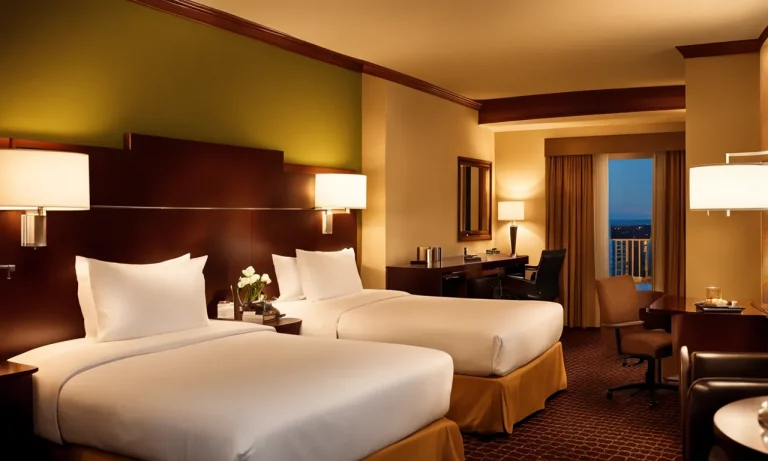Hotel room cooking is an art – it’s the practice of preparing your own meals while staying in a hotel room, harnessing the limited facilities at your disposal. It may seem unusual or even daunting, but it’s a highly beneficial skill, particularly for frequent travelers.
With the rising costs of eating out and increasing awareness of dietary restrictions and personal choices, cooking in a hotel room provides a viable and satisfying alternative.
If you’re short on time, here’s a quick answer to your question: Hotel room cooking can help you save money, adhere to dietary needs, and cater to personal preferences while traveling.
This guide will walk you through understanding the rules and etiquette of hotel room cooking, necessary tools, meal planning, grocery shopping, actual cooking, and even some ideal recipes. We’ll also share tips, tricks and common mistakes to avoid.
Understanding Hotel Room Cooking Rules & Etiquette
One of the best things about hotel room cooking is that it can save you a lot of money, especially if you are traveling on a budget. However, before you start cooking up a storm, it is essential that you understand the rules and etiquette of hotel room cooking to avoid any issues.
Research the hotel’s policy on in-room cooking
Before you start cooking in your hotel room, it is crucial to check the hotel’s policy on in-room cooking. Some hotels prohibit cooking in the rooms due to safety concerns or to prevent odors from disturbing other guests. Other hotels may allow cooking but have specific guidelines and rules that you must follow.
You can usually find this information on the hotel’s website or by contacting the front desk. It is essential to respect the hotel’s policies to avoid any issues with hotel staff or other guests.
Fire safety and responsibility
When cooking in a hotel room, fire safety should be your top priority. It is crucial to use cooking devices and appliances that are safe and approved for indoor use. Never leave cooking food unattended, and make sure to turn off all appliances when you are finished cooking.
It is also essential to be responsible for any damage that may occur while cooking in the hotel room. If you accidentally start a fire or cause damage to the room, you may be liable for the cost of repairs or face legal consequences.
Respecting other guests (noise, odors)
When cooking in a hotel room, it is essential to be mindful of other guests. Avoid cooking dishes that produce strong odors or loud noises that may disturb other guests. Additionally, make sure to clean up after yourself and dispose of any food waste properly.
It is also essential to be aware of the time of day and avoid cooking during quiet hours, typically early morning or late at night. If you are unsure about whether your cooking may disturb other guests, it is best to check with the hotel staff beforehand.
Also Read:
Necessary Tools for Hotel Room Cooking
Cooking in a hotel room can be a challenge, but with the right tools, you can whip up a tasty meal for yourself or your family. Here are the necessary tools for hotel room cooking:
Built-in facilities (microwave, fridge, coffee maker)
Most hotels come equipped with a mini-fridge and a microwave, and some even have a coffee maker. These are the basic facilities you can use to cook your meals. You can store ingredients in the fridge and use the microwave to heat up your food. You can also use the coffee maker to boil water for cooking or making instant noodles.
Also Read:
Portable cooking equipment
If you want to cook more elaborate meals, then you may need to invest in some portable cooking equipment. A portable electric burner or a camping stove can be used to cook meals that require a stovetop. They are small and easy to store in your luggage. Just make sure you check with the hotel first to see if they allow it.
Travel-sized appliances
If you are a frequent traveler who loves to cook, then you may want to invest in some travel-sized appliances. A mini rice cooker, a small blender, or a single-serving smoothie maker can be a great addition to your hotel room cooking kit. They are compact and can be easily packed in your suitcase.
Basic utensils
You don’t need a full kitchen to cook a decent meal. All you need are some basic utensils such as a knife, a cutting board, a spatula, a spoon, and a fork. You can buy a set of travel utensils that come in a compact case and can be easily stored in your luggage.
Cleaning supplies
Cooking can be messy, so it’s important to have some cleaning supplies on hand. Pack some dish soap, a sponge, and a towel to clean up after cooking. You can also bring some disposable plates and cutlery to make cleanup easier.
With these necessary tools, you can cook up a storm in your hotel room and save money on eating out. Just remember to be considerate of other hotel guests and clean up after yourself.
Also Read: How To Clean Hotel Rooms Fast: A Comprehensive Guide
Planning Meals
Factors to consider (cooking facilities, storage)
Planning meals in a hotel room can be challenging, but with the right approach, it can be a fun and budget-friendly alternative to eating out. When planning meals, the first thing to consider is the cooking facilities available in your hotel room. Many hotels provide a mini-fridge, microwave, and coffee maker, while others may have a kitchenette with a stovetop and oven. It is essential to take note of what is available to plan your meals accordingly.
Another factor to consider is storage. If you plan to cook multiple meals, you will need to ensure that you have enough space to keep your ingredients fresh. It is best to bring a small cooler bag or ask the hotel for an extra mini-fridge if available.
what to cook when traveling/hotel jumping
by u/Sad-Cartoonist-7959 in Cooking
Meal prepping and planning
Meal prepping and planning can save time and money when cooking in a hotel room. Before your trip, plan out your meals and make a shopping list of the ingredients you will need. Consider preparing some meals in advance, such as marinating meats, chopping vegetables, or cooking rice, to make the cooking process quicker and more manageable.
Simple recipes
When cooking in a hotel room, simple recipes are key. Opt for dishes that require minimal ingredients and can be made in one pot or pan. Pasta dishes, stir-fries, and omelets are all great options that can be customized to your liking. Consider bringing a few of your favorite spices and condiments to add flavor to your meals.
Healthy options
Eating healthy while traveling can be a challenge, but it is possible when cooking in a hotel room. Choose recipes that incorporate plenty of vegetables and lean proteins such as chicken, fish, or tofu. Salads are also a great option for a healthy and refreshing meal. Don’t forget to stay hydrated by drinking plenty of water and bringing reusable water bottles to refill throughout the day.
Pro tip: Websites like Allrecipes.com and Foodnetwork.com offer a variety of simple and healthy recipes that can be adapted for cooking in a hotel room.
Buying Groceries
Finding local grocery stores or markets
One of the best ways to find local grocery stores or markets is to simply ask the hotel staff. They will often have recommendations for nearby stores or markets that are easily accessible. You can also do a quick search online for nearby grocery stores or markets. Many cities have farmer’s markets or specialty food stores that offer unique ingredients that you may not find in a regular grocery store.
What to buy: ingredients, snacks, drinks
When it comes to ingredients, it’s best to keep it simple. Consider recipes that require only a few ingredients that can easily be stored in your hotel room. Pasta dishes, stir-fries, and sandwiches are all great options that require minimal ingredients. For snacks, consider buying fruits, nuts, and granola bars that can easily be stored in your room. As for drinks, purchasing a few bottles of water, juice, or soda is always a good idea.
- Ingredients: pasta, rice, canned tomatoes, olive oil, salt, pepper, garlic, onions
- Snacks: fruits, nuts, granola bars
- Drinks: water, juice, soda
Storage and refrigeration considerations
Before purchasing groceries, it’s important to consider storage and refrigeration options in your hotel room. If your room has a mini-fridge, you’ll be able to store perishable items such as meat, cheese, and milk.
However, if you don’t have a fridge, it’s best to avoid purchasing items that require refrigeration. Instead, stick to non-perishable items like canned goods, pasta, and snacks that can be stored at room temperature. Be sure to also bring along some ziplock bags or containers to store any leftovers or partially used ingredients.
According to a survey conducted by Statista, 53% of U.S. hotel rooms provide a mini-fridge for guests.
| Mini-fridge availability by hotel star rating | Percentage of hotels |
|---|---|
| 1 star | 26% |
| 2 star | 40% |
| 3 star | 61% |
| 4 star | 80% |
| 5 star | 97% |
Source: Statista
Cooking in the Hotel Room
One of the biggest challenges of traveling is finding healthy and affordable food options. Eating out every meal can quickly become expensive, and it can be difficult to make healthy choices when you’re constantly on the go. However, with a little creativity and know-how, it is possible to cook delicious meals right in your hotel room. Here’s a comprehensive guide to cooking in the hotel room:
Step-by-step guide on using the available facilities (microwave, coffee maker)
Most hotel rooms are equipped with a microwave and a coffee maker, which can be used to prepare a variety of simple meals. Here’s how:
- Microwave: Use microwave-safe containers to cook foods like oatmeal, scrambled eggs, and even pasta. Be sure to cover the container with a microwave-safe lid or plastic wrap to prevent splatters. Always use caution when removing the container from the microwave, as it can be very hot.
- Coffee maker: Believe it or not, a coffee maker can be used to make more than just coffee. You can use it to boil water for tea or instant noodles, or even to cook small portions of food like rice or oatmeal.
Cooking with travel-sized appliances
If you’re looking to do more than just heat up leftovers, you may want to consider investing in some travel-sized appliances. Here are a few options:
| Appliance | Uses |
|---|---|
| Hot plate or electric skillet | Cooking meats, vegetables, and other dishes |
| Slow cooker | Cooking stews, soups, and other one-pot meals |
| Toaster oven | Baking, broiling, and toasting foods |
Of course, it’s important to check with your hotel before using any of these appliances, as some may not be allowed in the room.
Safety precautions and cleanup process
When cooking in a hotel room, it’s important to take some safety precautions to prevent accidents. Here are a few tips:
- Always unplug appliances when you’re not using them.
- Never leave cooking food unattended.
- Be sure to clean up any spills or messes right away to prevent slipping hazards.
- Dispose of any food waste properly to prevent odors and pests.
When you’re done cooking, be sure to clean up thoroughly. Use dish soap and hot water to clean any dishes or utensils you used, and wipe down any surfaces that may have come into contact with food. You don’t want to leave any lingering odors or stains that could result in additional charges from the hotel.
Cooking in a hotel room may seem daunting at first, but with a little practice and creativity, you can enjoy delicious and affordable meals right in your room.
Recipes Ideal for Hotel Room Cooking
Breakfast Ideas
When it comes to breakfast, there are plenty of easy and tasty options that can be made in a hotel room. One classic option is instant oatmeal, which can be made with hot water from the coffee maker. Another option is to make scrambled eggs using the microwave. Simply beat two eggs, add salt and pepper, and microwave for 30 seconds. Stir and microwave for an additional 30 seconds. Serve with toast and fresh fruit for a balanced breakfast.
How to make hotel style oatmeal?
by u/ScaryMei in AskCulinary
Lunch and Dinner Ideas
For lunch or dinner, there are many recipes that can be made with minimal cooking equipment. One easy option is to make a sandwich using deli meat and cheese from the hotel’s mini-fridge. Another option is to make a simple pasta dish using only a microwave. Cook pasta in a microwave-safe bowl filled with water for 8-12 minutes, stirring occasionally. Drain the water and add sauce, cheese, and any other desired toppings.
Healthy Snacks
When hunger strikes between meals, it’s important to have healthy snack options on hand. One easy option is to bring pre-cut veggies and hummus from home. Another option is to make your own trail mix using nuts, seeds, and dried fruit. For a sweet treat, mix Greek yogurt with honey and fruit for a protein-packed parfait.
Pro Tip: Don’t forget to pack basic cooking tools like a knife, cutting board, and can opener. And always be sure to clean up after yourself to avoid any additional cleaning fees from the hotel.
Tips and Tricks
If you’re looking to cook in a hotel room, there are a few tips and tricks that can make the process a lot smoother. Here are some ideas to help you maximize your small space, clean up efficiently, and adapt to different hotel setups:
Maximizing small spaces
One of the biggest challenges of hotel room cooking is the limited space. To make the most of what you have:
- Use multi-purpose tools: Look for tools that can serve multiple purposes, such as a knife that can also be used as a bottle opener.
- Invest in collapsible items: Collapsible bowls, strainers, and other items can be stored easily in a small space.
- Use the desk or dresser as a workspace: If your hotel room doesn’t have a kitchenette, use the desk or dresser as a makeshift workspace.
Efficient cleanup
Another challenge of hotel room cooking is cleaning up after yourself. Here are some ways to make cleanup easier:
- Bring your own cleaning supplies: Pack a small dish soap, sponge, and dish towel to clean up messes.
- Dispose of food waste properly: Use a plastic grocery bag or container to collect food scraps, and dispose of them in the trash or compost bin.
- Wipe down surfaces: Use disinfectant wipes or a spray cleaner to wipe down surfaces before and after cooking.
Adapting to different hotel setups
Not all hotel rooms are created equal. Here are some ways to adapt your cooking to different setups:
| Hotel setup | Cooking suggestions |
|---|---|
| Kitchenette | Make use of the stove, microwave, and small refrigerator. Consider bringing your own cooking utensils. |
| No kitchenette | Look for a hotel with a communal kitchen, or bring a portable induction cooktop and cookware. |
| Outdoor grill | Bring skewers and grill-friendly foods like vegetables, fish, and chicken. |
With these tips and tricks, you can make hotel room cooking a fun and enjoyable experience. Happy cooking!
Common Mistakes to Avoid
Overlooking hotel policies
One of the most common mistakes that travelers make when cooking in a hotel room is overlooking the hotel policies. Many hotels have strict policies on cooking appliances and may even prohibit guests from cooking in their rooms altogether.
Before you start cooking, make sure to check the hotel’s policies on cooking appliances. If you are unsure, reach out to the hotel staff and ask for clarification. Ignoring hotel policies can result in fines or even eviction from the hotel.
Unmanageable food quantities
Another mistake that travelers make when cooking in a hotel room is buying too much food. While it may be tempting to stock up on groceries, it can be difficult to store and prepare large quantities of food in a hotel room.
Before your trip, plan out your meals and only buy the necessary ingredients. Consider purchasing pre-made meals or snacks that don’t require cooking. This will help you avoid wasting food and save space in your hotel room.
Neglecting safety measures
When cooking in a hotel room, it’s important to prioritize safety measures. Neglecting safety measures can result in injuries or even fires.
Make sure to use appliances that are meant for travel, such as electric skillets or slow cookers. Avoid using appliances that produce an open flame, such as stovetops or grills. Always unplug appliances when not in use and keep them away from flammable materials.
Conclusion
The ability to cook in a hotel room not only aids in maintaining your budget but also provides a sense of comfort and control over your meals while traveling. It empowers you to meet your dietary restrictions and preferences, allowing you to stay healthy and satisfied on the go. By understanding hotel policies, utilizing available tools, planning your meals, and shopping wisely, you can maximize your hotel room cooking experience.
Remember to respect others, ensure safety, and manage food quantities wisely. It might seem challenging at first, but with a little planning and creativity, hotel room cooking can be a rewarding and enjoyable part of your travels. So, pack your travel-sized appliances, get those simple, healthy recipes ready, and embrace this unique culinary adventure during your next hotel stay.






